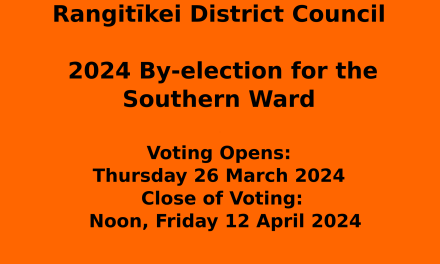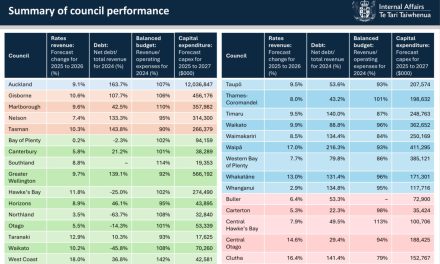John McDonald’s Invited Opinion Piece
[All contactable candidates for the 2025 Hamilton City Council Election were invited to supply CityWatch NZ with an opinion piece.]
Intergenerational Debt is Plundering the Future
By John McDonald ( Hamilton Mayoral and Hamilton East Ward candidate 2025 )
Around the time Hamilton City Council was planning to increase its debt levels past a billion dollars, I noticed disturbing language being used by some of the Council’s managers and elected officials. Intergenerational debt was being discussed as if it was a good thing. Burdening future generations with enormous debts was presented as the virtuous and just decision within the Council chambers.
Intergenerational debt was presented in terms of fairness. The argument for that long-term debt is basically that it is unfair to make current generations pay for building infrastructure when future generations will benefit from that infrastructure. A bridge or sewage treatment plant might last for 50+ years, so it can be argued that a future generation should pay for the cost via debt repayments. This is how council staff and some councillors represent the situation. They present it as a good thing to get the city into debt for infrastructure construction, and then pass that debt onto future generations. This growing debt will sometimes be rebranded as “intergenerational equity” in the council chamber.
This attitude from Council bureaucracy, and the elected officials who enable them, reminded me of the quote from French statesman Frédéric Bastiat.
“When plunder has become the means of existence of a large group of men mutually linked by social ties, they soon contrive to pass a law that sanctions it and a moral code that glorifies it.”
Economic Sophisms, Frédéric Bastiat, 1848
Central government has already created the legislation which permits councils to get deep into debt. Since its creation in 2011, the Local Government Funding Agency (LGFA) has increased councils debt-to-revenue limit to around 280%, enabling council to accumulate huge debts. The new water companies are being granted a 500% debt-to-revenue limit. They will become debt monsters.
Sometimes the legislation enables Councils to get into debt under quite dubious circumstances. Read sections 115-120 of the Local Government Act 2002, and then tell me that is not enabling some pretty sketchy activity. Such legislation appears to also sanction the use of ratepayers as the security to pay for council debt well into the future.
The moral code that glorifies the intergenerational debt appears to be a newer development.
In the past, we had tighter limits on extravagant and unwise spending. We often had “pay-as-you-go” infrastructure funding. Infrastructure was inherited from past generations then maintained, expanded, or improved using available annual revenue. Infrastructure was then passed onto future generations, generally in a functional state without burdensome debts.
We are in the middle of a local and national transformation towards a system of funding infrastructure with huge levels of intergenerational debt.
As more infrastructure is funded through debt, infrastructure costs are becoming obscenely high. Intergenerational debt is another major way that the bureaucracy and associated corporate interests are obtaining resources. In the short-term this means that large interest costs are potentially competing with routine services on Council’s annual budgets.
In the long-term this debt places burdens and limitations on future generations. Those future generations are not able to stand up for their interests when Council is making borrowing decisions. This makes future generations potentially a soft target when Council is deciding who will pay for the waste, wrongdoing, or extravagance of the current Council. We need to stand up for the interests of future generations.
I am increasingly viewing intergenerational debt as the bureaucracy, and corporate interests, plundering the future.
High debt levels also places a city, and its people, at strategic risk.
A financially distressed Council with “unsustainable debt levels” is more easily pressured into implementing measures the locals do not want. We have already seen this with all the anti-car roading designs in Hamilton. The Council was using NZTA subsides on raised platforms to increases the debt limit and enable more borrowing. Currently, think tanks, lobbyists, and bureaucrats are heavily pushing for infrastructure asset sales, road pricing, and congestion charges.
If you read the KPMG International’s “Great Reset” report from earlier this year, this could all lead to the “Great Privatization” as institutional investors prepare to acquire the roads, bridges, and utilities of governments with “unsustainable debt levels”. Not a future I want for my City.
We need to restore a culture of prudent stewardship within Council. Burdening future generations with the debts from unwise and extravagant spending in the present must become morally unacceptable with the City Council.
We need reduce extravagance, wrongdoing and inefficiency within the bureaucracy. There needs to be more transparency and more accountability.
We need to improve contract negotiation practices to reduce costs and ensure that ratepayers benefit from economies-of-scale or alternative providers.
We need to acknowledge the reality that large bureaucratic organisations have certain tendencies that we need watch out for and actively curb. They will expand to consume available resources. Having depleted the past, and overburdened present generations, the bureaucracy is increasingly plundering the future.
Placing restrictions and constraints on Council is an obligation of councillors. You as residents and ratepayers, voters and electors, also have that obligation, especially during election time. Rarely will a bureaucracy decide for itself to restrict its own revenue collection activities. External pressure is critical to containing a bureaucracy.
Send John McDonald in to Hamilton City Council to make the bureaucracy less expensive and less complicated. Send him into Council to challenge the intergenerational debt, challenge the system that enables that debt, and challenge the culture that glorifies that debt.
This election is critically important for our City’s future, so encourage others to vote. Rank multiple candidates for mayor and on your ward to minimises the chances of your vote will be wasted.

Authorised by John McDonald-Wharry
https://johnforhamilton.substack.com/
CC BY-ND 4.0
[The content of any Opinion pieces represents the views of the author and the accuracy of any content in a post labelled Opinion is the responsibility of the author. Posting of this Opinion content on the CityWatch NZ website does not necessarily constitute endorsement of those views by CityWatch NZ or its editors. CityWatch NZ functions to provide information and a range of different perspectives on New Zealand’s cities and local councils. If you disagree with or dispute the content, CityWatch NZ can pass that feedback on to the author. Send an email to feedback@citywatchnz.org and clearly identify the content and the issue.]



